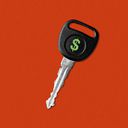Under the hood of Hertz's bankruptcy

Published Date: 5/26/2020
Source: axios.com
Car rental giant Hertz filed for Chapter 11 bankruptcy on Friday, ostensibly felled by a pandemic that dramatically lowered demand at its airport counters.Under the hood: Hertz is a Frankenstein of financial engineering, beginning with its leveraged buyout in 2005 and continuing long after its private equity owners cashed out.History: Clayton Dubilier & Rice led a $14.8 billion purchase of Hertz from Ford Motor Co. in late 2005. The deal included just $2.3 billion of equity, split equally with the Carlyle Group and Merrill Lynch's private equity unit, and leveraged $6.9 billion of financing against its fleet.Six months later it completed a $1 billion dividend recap, meaning the private equity firms de-risked while the company re-levered.Hertz went public less than a year after the buyout. Leading into the IPO, it had a debt-to-asset radio of nearly 95% and very little cash on hand.In 2012 the company overpaid to buy smaller rivals Dollar and Thrifty, and in 2013 the private equity firms completely exited.Following an accounting scandal that dated back to 2011, activist investor Carl Icahn began to invest. At the time of bankruptcy, he was the company's largest shareholder with nearly a 39% stake.In 2016, Hertz spun off its equipment rental company into a separate, stand-alone public company.What to know: Hertz made money by renting cars, but it was more in the car-leasing business. Or, more specifically, creating special purpose vehicles that would issue debt to buy cars, then leasing those cars and renting them out.All the while it would pay coupons on the asset-backed securities, hoping to turn profits via the rentals combined with vehicle resale.Plus, resale prices have fallen sharply during the pandemic, and will come under further pressure if Hertz creditors force partial fleet liquidation.Here's how the FT's Sujeet Indap summarized things:"Hertz is basically a bank that rents cars. This structure reduces the overall cost of capital but when the music stops, look out."The bottom line: Hertz elevated the Wall Street shell game that originally helped finance its 2005 takeover, without apparently noticing that the original operators had left town.